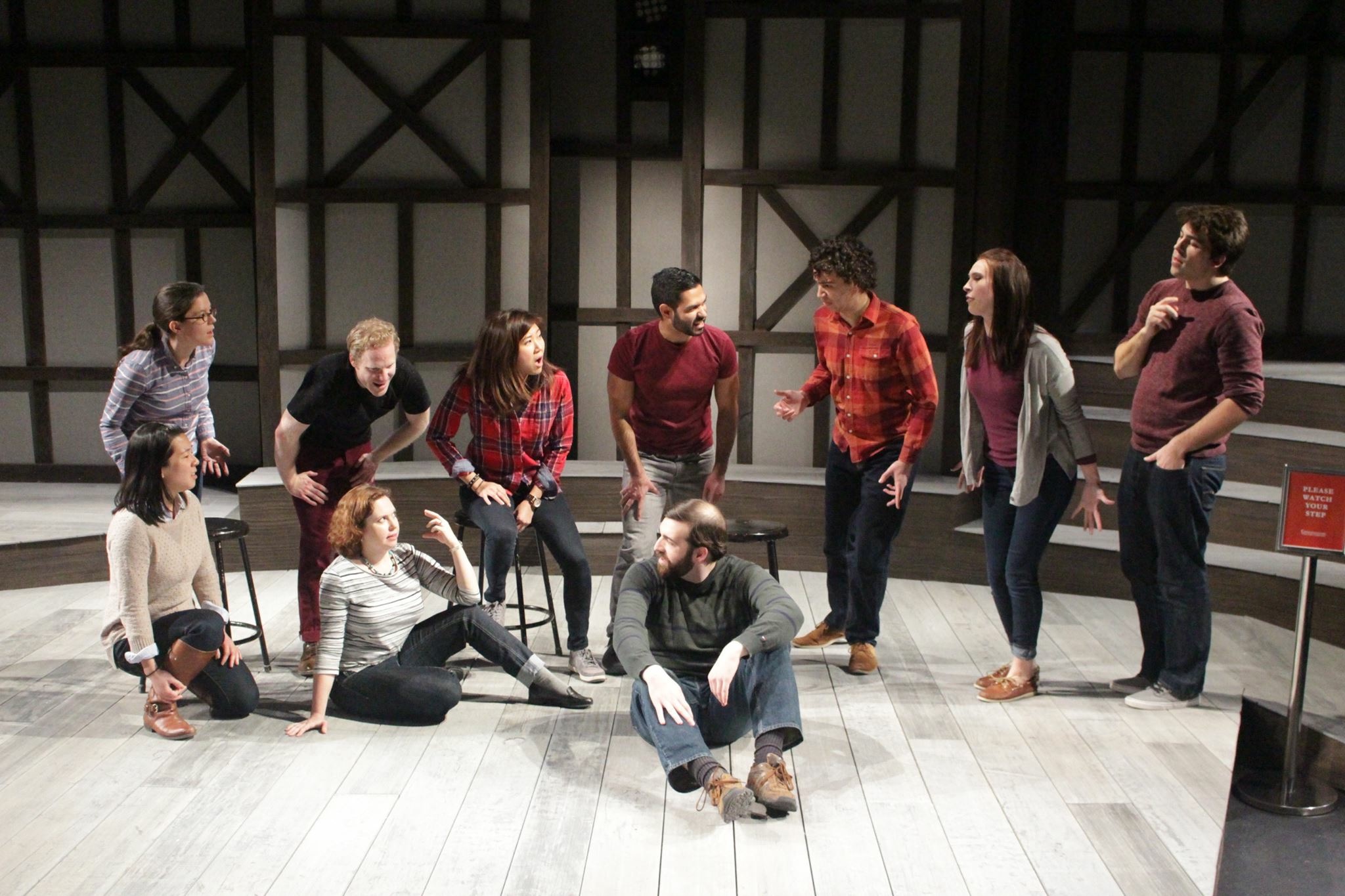Harold (improvisation) on:
[Wikipedia]
[Google]
[Amazon]
 Harold is a structure used in longform
Harold is a structure used in longform
improvisational theatre
Improvisational theatre, often called improvisation or improv, is the form of theatre, often comedy, in which most or all of what is performed is unplanned or unscripted: created spontaneously by the performers. In its purest form, the dialogue, a ...
that is performed by improv troupes and teams across the world. In the Harold structure, characters and themes are introduced and then recur in a series of connected scenes. It was first performed in California by The Committee in 1967.
History
The Committee, aSan Francisco
San Francisco (; Spanish language, Spanish for "Francis of Assisi, Saint Francis"), officially the City and County of San Francisco, is the commercial, financial, and cultural center of Northern California. The city proper is the List of Ca ...
improv group, performed the first Harold in Concord, California
Concord ( ) is the largest city in Contra Costa County, California. According to an estimate completed by the United States Census Bureau, the city had a population of 129,295 in 2019 making it the eighth largest city in the San Francisco Bay ...
, in 1967. They were invited to a high school and decided to do their improvisations on the war in Vietnam
The Vietnam War (also known by #Names, other names) was a conflict in Vietnam, Laos, and Cambodia from 1 November 1955 to the fall of Saigon on 30 April 1975. It was the second of the Indochina Wars and was officially fought between North Vie ...
. On the way home in a Volkswagen bus Volkswagen Bus or Volkswagen Van is a type of vehicle produced by Volkswagen/Volkswagen Commercial Vehicles.
There have been a number of notable versions of it produced.
Volkswagen Bus light commercial vehicles
Six generations of Volkswagen Transp ...
, they were discussing the performance, when one of them asked what they should call it. Allaudin (Bill) Mathieu, ( W.A. Mathieu) called out "Harold", which was a joking reference to a line from '' A Hard Day's Night'' where a reporter asks George Harrison what he calls his haircut and he answers "Arthur". The form was further developed by improv teachers Del Close
Del Close (March 9, 1934 – March 4, 1999) was an American actor, writer, and teacher who coached many of the best-known comedians and comic actors of the late twentieth century. In addition to an acting career in television and film, he was ...
and Charna Halpern
Charna Halpern (born June 1, 1952) is an American comedian who is co-founder of the ImprovOlympic, now known as iO. Upon iO's founding, in 1983, with partner Del Close, she began teaching Harold to many students in the Chicago theater community ...
, as well as the Upright Citizens Brigade
The Upright Citizens Brigade is an improvisational and sketch comedy group that emerged from Chicago's ImprovOlympic in 1990. The original incarnation of the group consisted of Matt Besser, Amy Poehler, Ian Roberts, Matt Walsh, Adam McKay, ...
.
When The Committee disbanded in 1972, improv company ''Improvisation, Inc.'' was the only company in America continuing to perform the group's "original" Harold: a 45-minute free-form piece that would seamlessly move from one "Harold technique" to another. In 1974, in Los Angeles, former Committee member Gary Austin co-founded The Groundlings
The Groundlings is an American improvisational and sketch comedy troupe and school based in Los Angeles. The troupe was formed by Gary Austin in 1974 and uses an improv format influenced by Viola Spolin, whose improvisational theater techniqu ...
, using improv-as-a-tool. In 1976, two former ''Improvisation, Inc.'' performers, Michael Bossier and John Elk, formed ''Spaghetti Jam'', performing in San Francisco's Old Spaghetti Factory
The Old Spaghetti Factory is an Italian-American-style chain restaurant in the United States and Canada. The U.S. restaurants are owned by OSF International, based in Portland, Oregon, while the Canadian restaurants are owned by The Old Spaghett ...
through 1983. ''Spaghetti Jam'' performed Harolds while also turning Spolin games and Harold techniques into stand-alone performance pieces (i.e., shortform improv).
The 1994 book ''Truth in Comedy'' describes a "training wheels Harold" as three acts (or "beats"), each with three scenes and a group segment. With each beat, the three scenes return. By the end of the piece, the three scenes have converged.
Modified Harolds
Some modern improv forms are Harolds with an added requirement. These include: * Monoscene – Originally and occasionally still Harold set in one location. * Sybil – Harold performed by a solo performer. * The Bat – Harold performed in the dark. * The Armando - A Harold performed with a guest monologist telling true storiesReferences
{{DEFAULTSORT:Harold (Improvisation) Theatrical genres Improvisational theatre 1960s introductions 1960s in comedy